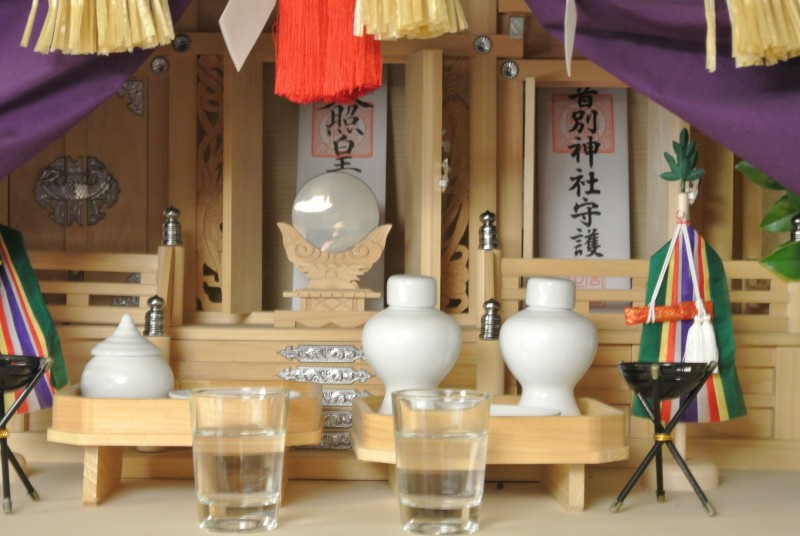Hearn was an agnostic, but he had a sympathetic interest in Buddhism and Shinto as his writings attest. In an 1893 letter to his friend, Basil Hall Chamberlain, he wrote once of the daily cycle of life in his extended family (along with his wife, Setsuko, the author at one time supported as many as nine people including children, relatives and servants).
Buddhism and Shinto were formally severed by the Meiji government of 1868, though it’s evident that in people’s hearts the religions continued to be fused as one. This is clear too from the daily reverence to buddhas and kami shown in Hearn’s household, and it’s notable how integral the religious worship was to his family life. One striking feature is that particular attention is paid to hotoke in the morning and kami in the evening (though one might have expected the opposite). What’s interesting too is the localised nature, whereas the Meiji government was all about imposing centralisation and regularisation.
The following extract is taken from Wandering Ghost by Jonathan Cott, p. 316. (Curved brackets are Hearn’s words), [square brackets are mine].
*****************

Morning 6am – The little alarm clock rings… The servants enter, prostrate themselves, and say good morning to the danna-sama [master], and proceed to open the to [door]. Meanwhile, in the other chambers the little oil lamps have been lighted before the tablets of the ancestors, and the buddhist (not the Shinto) deities – and prayers are being said, and offerings to the ancestors made. (Spirits are not supposed to eat the food offered them, – only to absorb some of its living essence, therefore the offerings are very small.) Already the old men are in the garden, saluting the rising sun, and clapping their hands, and murmuring the Izumo prayers.
[Description of his daily life follows, leaving for work, then lunch, bath hour, supper.]
As evening wanes, the turn of the Kami-sama comes. During the day, they receive their usual offerings, but it is at night the special prayers are made. The little lamps are lighted, and each of the family in turn, except myself, say the prayers and pay reverence. These prayers are always said standing, but those to the hotoke [Buddhist dead] are said kneeling. Some of the prayers are said for me. I was never asked to pay but once – when there was grief in the house; and then I prayed to the Gods, repeating the Japanese words one by one as they were told to me. The little lamps of the Kami are left to burn themselves out. All wait for me to give the signal of bed-time, – unless I am so absorbed in writing as to forget the hour…


Leave a Reply